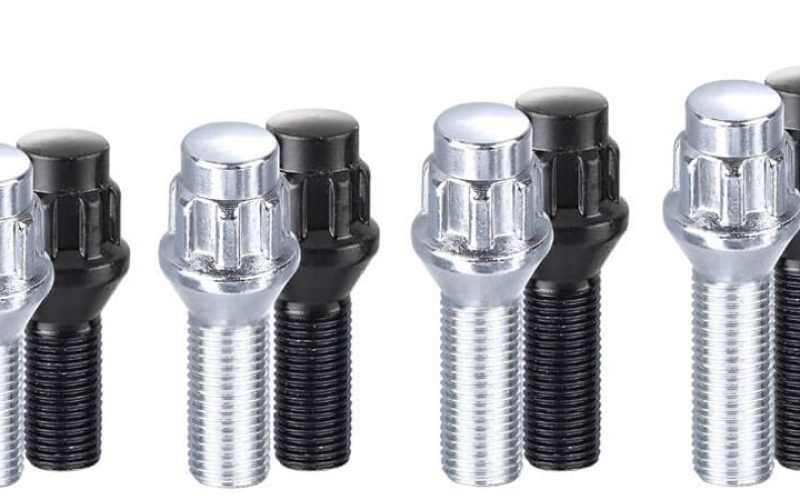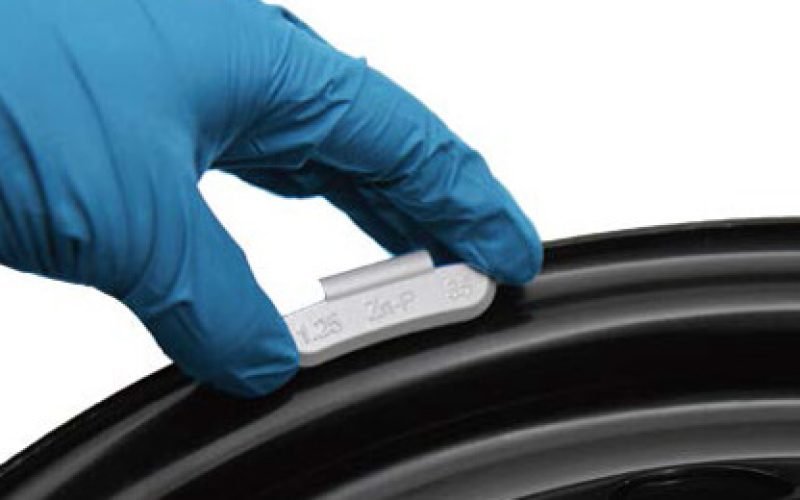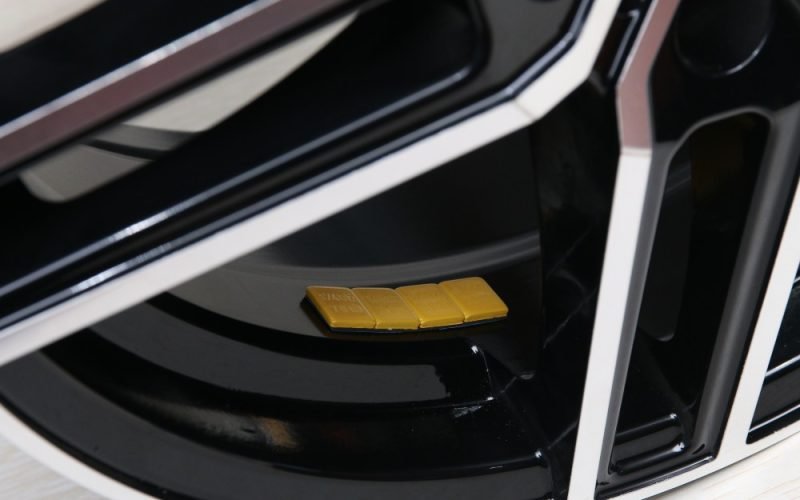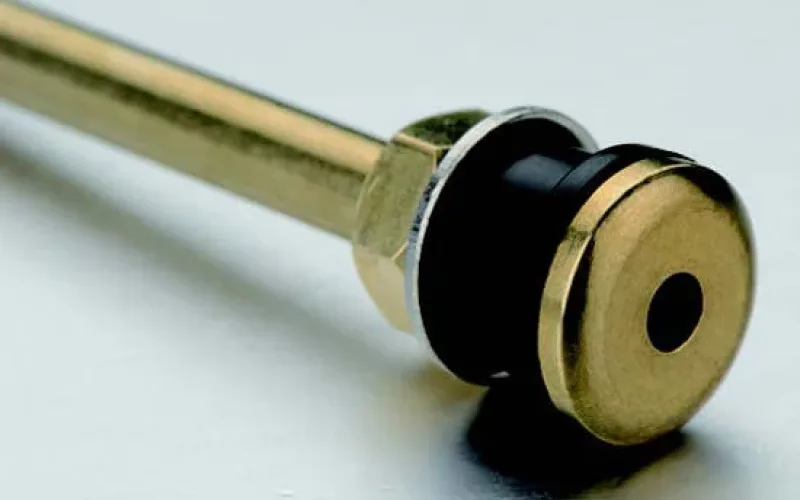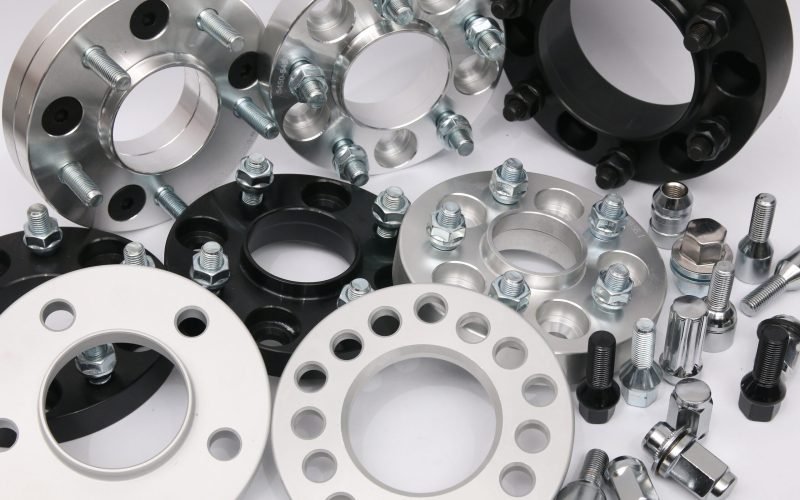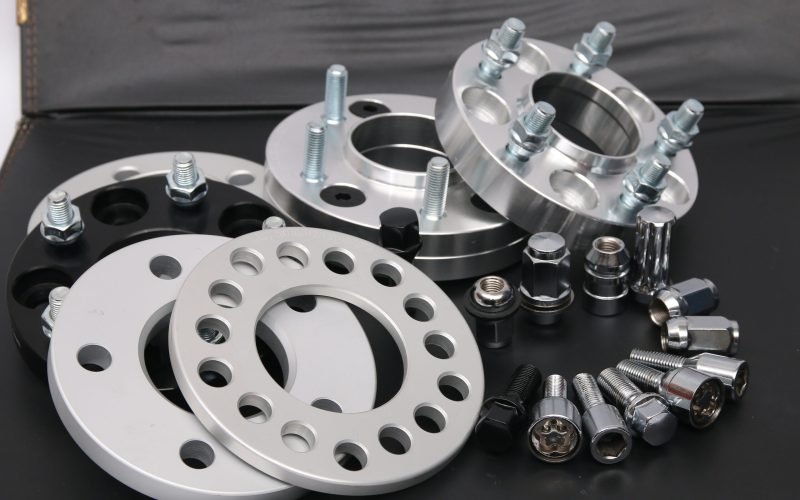

admin1
June 12, 2025
Comparing Clip On Lead Weights with Zinc and Steel Alternatives

Choosing the right wheel weights directly impacts your vehicle’s performance and environmental footprint. Clip on lead weights have long been favored for their durability and cost-effectiveness. However, environmental concerns and regulations are driving a shift toward zinc and steel alternatives. Zinc-based weights offer a sustainable option with reduced environmental harm, while steel weights stand out for their durability and affordability. The wheel balancing weight market is growing rapidly, projected to reach USD 1.59 billion by 2024, reflecting the increasing demand for eco-friendly and efficient solutions. Selecting the right type ensures optimal performance and aligns with environmental goals.
Understanding Clip-On Lead Weights

Definition and Purpose
Clip-on lead weights are small, dense components designed to balance vehicle wheels. They attach directly to the wheel rim, ensuring even weight distribution. This balance minimizes vibrations and enhances driving comfort. These weights are particularly effective due to their high density, which allows them to provide significant weight in a compact size. You’ll often find them used in automotive settings where precision and reliability are essential.
Features and Benefits
Lead wheel weights offer several advantages. Their durability ensures they withstand harsh road conditions without deforming or detaching. The compact size of lead weights makes them ideal for vehicles with limited space around the wheel rim. Additionally, their cost-effectiveness appeals to both manufacturers and consumers. These weights also provide consistent performance, maintaining wheel balance over time. For those seeking reliable and long-lasting solutions, clip-on lead weights remain a popular choice.
Common Applications
Clip-on lead weights are widely used in the automotive industry. They play a crucial role in balancing tires for passenger cars, trucks, and even motorcycles. In Canada, lead wheel weights dominate the market, accounting for 72% of tire balancing applications. Most of these weights are clip-on types, making up 90-95% of the total wheel weights used. This highlights their importance in ensuring smooth and safe vehicle operation. Their versatility also makes them suitable for various vehicle types, from compact cars to heavy-duty trucks.
Exploring Zinc and Steel Clip-On Weights
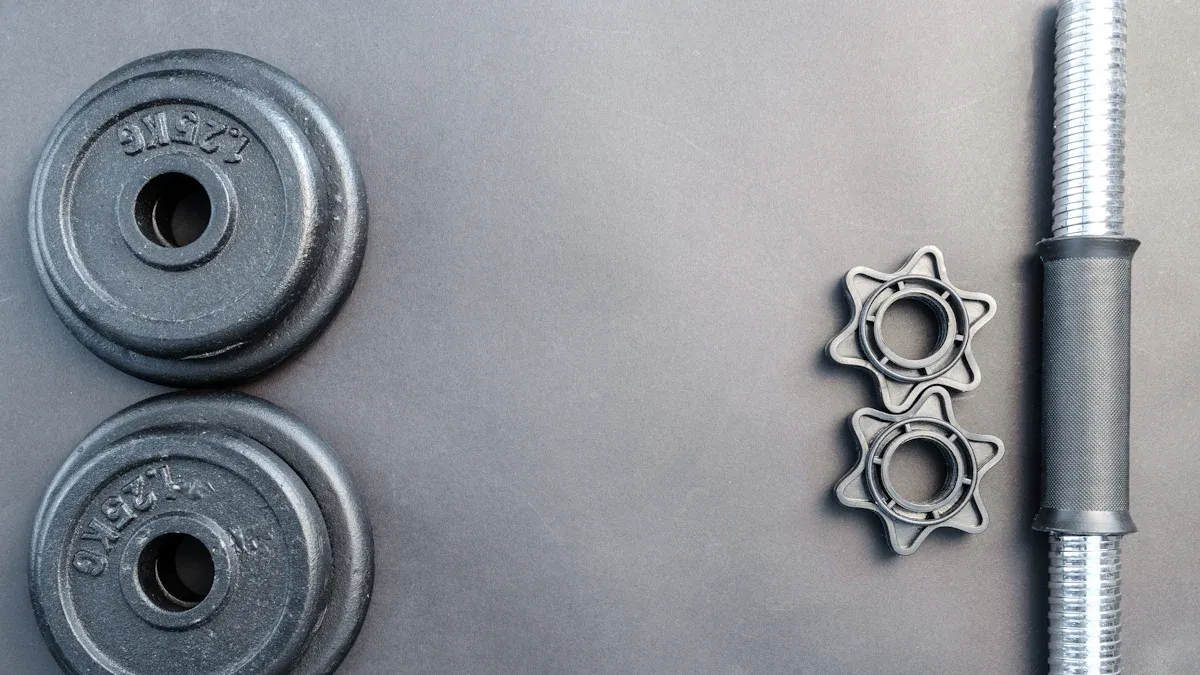
Zinc Weights: Features and Benefits
Zinc wheel weights offer a modern, eco-friendly alternative to traditional lead weights. You’ll find that zinc is denser than aluminum, which means it provides better damping and strength. This makes it effective for balancing wheels while maintaining a compact size. Zinc weights also excel in durability due to their corrosion resistance. A protective zinc oxide layer forms on the surface, shielding the weights from rust and wear, even in harsh environments.
Zinc’s excellent castability allows for precise designs, reducing the need for additional machining. This not only lowers manufacturing costs but also ensures a high-quality surface finish. Zinc weights are energy-efficient to produce since they melt at lower temperatures compared to steel or aluminum. Their mechanical strength and toughness make them suitable for vehicles that encounter high-stress conditions.
| Property | Value | Unit | Description |
|---|---|---|---|
| Density | 6.6 – 6.9 | g/cm³ | Offers better damping and strength compared to lighter materials like aluminum. |
| Tensile Strength (Zamak 3) | ~280 | MPa | Provides sufficient strength for automotive applications. |
| Elongation at Break | 10 – 15 | % | Absorbs impact without cracking, ensuring durability. |
| Surface Finish Quality | Excellent | – | Supports high cosmetic quality with minimal post-processing. |
| Tolerance Control | ±0.02 – ±0.05 | mm | Achieves tight tolerances, reducing the need for secondary machining. |
Steel Weights: Features and Benefits
Steel wheel weights are known for their strength, affordability, and widespread use. They dominate the automotive industry, making up about 70% of an average car’s weight. Steel’s high strength allows manufacturers to create thinner, lighter components without compromising safety. Advanced High-Strength Steels (AHSS) reduce vehicle weight by up to 25-40%, improving fuel efficiency and performance.
Steel is also cost-effective. Its low production cost and recyclability make it an attractive choice for manufacturers and eco-conscious consumers. Recycling steel is simpler than other materials, leading to lower CO2 emissions and energy savings. Additionally, steel weights provide reliable balancing due to their density and strength, making them ideal for heavy-duty vehicles.
| Feature/Benefit | Description |
|---|---|
| Market Share | Steel constitutes about 70% of an average car’s weight, showcasing its dominance in automotive usage. |
| Weight Reduction | AHSS reduces vehicle weight by up to 25-40%, enhancing fuel efficiency. |
| Cost-Effectiveness | Steel is affordable and easy to manufacture, making it a budget-friendly option. |
| Environmental Benefits | Recycling steel reduces CO2 emissions and saves energy. |
| Strength and Lightweighting | AHSS provides greater strength, enabling lighter designs without compromising safety. |
Applications and Suitability
When choosing between zinc and steel weights, you should consider your vehicle type and driving conditions. Steel wheel weights are durable and cost-effective, making them ideal for heavy-duty vehicles and budget-conscious drivers. However, they are heavier and may rust over time. Zinc wheel weights, on the other hand, resist corrosion and are environmentally friendly. They are perfect for vehicles operating in corrosive environments or for those prioritizing eco-friendliness.
Steel weights provide reliable balancing and are generally the most affordable option. Zinc weights, while pricier, offer benefits like corrosion resistance and a lead-free composition. Both options are suitable for balancing most vehicles, but your choice depends on your specific needs and priorities.
Comparing Clip-On Lead Weights with Zinc and Steel Alternatives
Durability and Longevity
When it comes to durability, clip on lead weights have long been a trusted choice. Their high density and compact size allow them to withstand harsh road conditions without deforming or detaching. These weights often feature a powder-coated surface, which prevents corrosion and staining, ensuring they last longer even in challenging environments. This makes them particularly effective for off-road vehicles, where durability is critical. Additionally, clip-on weights improve traction and stability, reducing vibrations that could damage vehicle components over time. This not only enhances driving comfort but also extends the lifespan of your vehicle.
Steel weights, on the other hand, are known for their exceptional strength. They are highly durable and recyclable, making them an eco-friendly option. Advanced High-Strength Steels (AHSS) used in some steel weights provide greater strength while maintaining a lightweight design. This combination ensures reliable performance and longevity, especially for heavy-duty vehicles. Zinc weights also offer impressive durability. Their corrosion resistance comes from a protective zinc oxide layer that forms on the surface, shielding them from rust and wear. This makes zinc weights a great choice for vehicles operating in wet or corrosive environments.
Each material has its strengths. Lead weights excel in compactness and reliability, steel weights stand out for their toughness, and zinc weights offer a balance of durability and environmental benefits. Your choice depends on your specific needs and the conditions your vehicle faces.
Environmental Impact
The environmental impact of wheel weight materials is a growing concern. Lead weights, while effective, pose significant environmental risks. Studies show that lead can leach into soil and water, harming ecosystems and human health. This has led many regions to restrict or ban the use of lead wheel weights. In contrast, zinc and steel weights offer more sustainable alternatives. Zinc, for example, is widely used in Europe and favored by large OEMs in North America due to its lead-free composition. Its malleable quality makes it a functional replacement for lead weights without compromising performance.
Steel weights also have a lower environmental footprint. They are fully recyclable, and recycling steel reduces CO2 emissions and saves energy compared to producing new materials. Additionally, steel’s durability means fewer replacements, which minimizes waste over time. Comparative studies highlight that alternative materials like zinc and steel have a smaller environmental impact than lead, making them better choices for eco-conscious drivers.
Switching to lead-free options not only benefits the environment but also aligns with global efforts to reduce pollution. By choosing zinc or steel weights, you contribute to a cleaner, safer planet while maintaining your vehicle’s performance.
Cost and Affordability
Cost plays a significant role in selecting the right wheel weights. Lead weights are often the most cost-effective option due to their low production costs and widespread availability. This affordability makes them a popular choice for many drivers and manufacturers. However, the environmental concerns associated with lead have led to increased regulations, which may affect their long-term availability and cost.
Steel weights offer a budget-friendly alternative. Their low production cost and recyclability make them an economical choice for both manufacturers and consumers. Despite being slightly heavier than lead, steel weights provide excellent value for their durability and performance. Zinc weights, while generally more expensive than lead and steel, offer unique benefits that justify their price. Their corrosion resistance and eco-friendly nature make them a worthwhile investment, especially for vehicles operating in harsh conditions.
When considering cost, you should also factor in the long-term savings. Durable materials like steel and zinc reduce the need for frequent replacements, saving you money over time. Balancing affordability with performance and environmental considerations will help you make the best choice for your needs.
Compatibility with Vehicle Types
Choosing the right wheel weights depends on your vehicle type and its specific needs. Lead weights are versatile and work well with a wide range of vehicles. Their compact size and high density make them ideal for passenger cars, motorcycles, and trucks. If you drive a heavy-duty vehicle, lead weights provide reliable performance under demanding conditions. Their ability to maintain balance over time ensures smooth operation for vehicles that carry heavy loads or travel long distances.
Steel weights are a great alternative for vehicles requiring durability and strength. They suit heavy-duty trucks, SUVs, and off-road vehicles. Steel’s toughness makes it perfect for vehicles exposed to rough terrains or extreme weather. Advanced High-Strength Steel (AHSS) weights also reduce vehicle weight, improving fuel efficiency without compromising safety. If you prioritize cost-effectiveness and reliability, steel weights are an excellent choice.
Zinc weights offer unique benefits for specific vehicle types. Their corrosion resistance makes them ideal for vehicles operating in wet or coastal environments. Zinc weights are also a lead-free option, aligning with eco-friendly goals. They are commonly used in passenger cars and light trucks, especially in regions with strict environmental regulations. If your vehicle operates in corrosive conditions or you prefer a sustainable solution, zinc weights are worth considering.
Tip: Always check your vehicle manufacturer’s recommendations before selecting wheel weights. Compatibility ensures optimal performance and safety.
Installation and Maintenance
Proper installation and maintenance of wheel weights are essential for their effectiveness. Clip-on lead weights are easy to install. Their design allows them to attach securely to the wheel rim, minimizing the risk of detachment during operation. You can install them quickly using basic tools, making them a convenient option for both professionals and DIY enthusiasts. Regular inspections ensure they remain firmly attached and free from damage.
Steel weights require careful handling during installation. Their heavier design demands precision to avoid imbalance. Using specialized tools ensures a secure fit and prevents damage to the wheel rim. Steel weights are durable, but periodic checks help identify signs of rust or wear. Cleaning the weights and rims regularly extends their lifespan and maintains performance.
Zinc weights are lightweight and easy to install. Their corrosion-resistant properties reduce maintenance needs, but you should still inspect them periodically. Look for signs of wear or damage, especially if your vehicle operates in harsh environments. Zinc weights often feature a protective coating, which should remain intact to prevent corrosion. If you notice any issues, replacing the weights promptly avoids further problems.
Note: Proper installation and maintenance not only improve wheel balance but also enhance your vehicle’s safety and longevity.
Choosing the Right Clip-On Weights for Your Needs
Factors Based on Vehicle Type
Selecting the right clip-on weights starts with understanding your vehicle’s design and requirements. Different vehicles demand specific types of wheel weights to ensure proper balance and performance. For example, steel wheels often pair well with clip-on weights due to their durability and secure fit. Alloy wheels, on the other hand, are better suited for stick-on weights, which offer a cleaner aesthetic by remaining hidden inside the wheel.
| Feature | Clip-on Wheel Weights | Stick-on Wheel Weights |
|---|---|---|
| Installation Method | Clipped onto the rim | Adhesive backing |
| Best for | Steel wheels, heavy-duty | Alloy wheels, passenger cars |
| Durability | High | Moderate |
| Aesthetic Impact | Visible on the rim | Hidden inside the wheel |
| Ease of Installation | Requires tools | Simple, no tools needed |
Wheel size also plays a critical role. Larger wheels, such as those on SUVs and trucks, require heavier weights to achieve proper balance. High-speed vehicles, like sports cars, demand precise balancing to maintain safety and performance. You should always consider your vehicle type and wheel design before choosing a weight.
Tip: Check your vehicle’s manual or consult a professional to identify the most compatible wheel weights for your specific model.
Driving Conditions and Performance
Your driving environment significantly influences the type of wheel weights you need. Vehicles operating in rugged terrains or extreme weather conditions benefit from durable materials like steel or lead. These weights withstand harsh environments without compromising balance. For off-road vehicles, clip-on weights provide the stability needed to navigate uneven surfaces.
If you frequently drive in wet or coastal areas, zinc weights are an excellent choice. Their corrosion-resistant properties ensure long-lasting performance, even in humid conditions. For high-speed driving, such as on highways or racetracks, precise balance is crucial. Lead weights excel in maintaining stability at high speeds, reducing vibrations and enhancing control.
Consider how your vehicle performs under different conditions. Heavy-duty trucks require weights that can handle large loads, while passenger cars prioritize smooth and quiet operation. Matching your wheel weights to your driving conditions ensures optimal performance and safety.
Budget Considerations
Budget plays a key role in your decision-making process. Lead weights are often the most affordable option, making them a popular choice for drivers seeking cost-effective solutions. Steel weights provide excellent value due to their durability and recyclability. They are ideal for those looking for a balance between affordability and performance.
Zinc weights, while pricier, offer unique benefits that justify their cost. Their eco-friendly composition and corrosion resistance make them a worthwhile investment for vehicles operating in challenging environments. Although zinc weights may require a higher upfront cost, their longevity reduces the need for frequent replacements, saving you money in the long run.
Note: Weigh the initial cost against long-term savings. Durable materials like steel and zinc minimize replacement expenses, making them a smart choice for budget-conscious drivers.
By considering your vehicle type, driving conditions, and budget, you can make an informed decision that aligns with your needs.
Tips for Making an Informed Decision
Making the right choice for clip-on wheel weights requires careful consideration of several factors. By following these tips, you can ensure that your decision aligns with your vehicle’s needs, driving conditions, and personal priorities.
1. Understand Your Vehicle’s Requirements
Every vehicle has unique specifications that determine the type of wheel weights it needs. Start by consulting your vehicle’s manual or reaching out to a professional mechanic. Pay attention to details like:
- Wheel Material: Steel wheels often work best with clip-on weights, while alloy wheels may require stick-on weights for a cleaner look.
- Wheel Size: Larger wheels, such as those on SUVs or trucks, need heavier weights for proper balance.
- Vehicle Type: Passenger cars, heavy-duty trucks, and motorcycles each have different balancing needs.
Tip: If you’re unsure about compatibility, ask your tire service provider for recommendations tailored to your vehicle.
2. Evaluate Your Driving Conditions
Your typical driving environment plays a significant role in determining the best material for your wheel weights. Consider the following:
- Rugged Terrains: Steel weights are ideal for off-road vehicles due to their strength and durability.
- Wet or Coastal Areas: Zinc weights resist corrosion, making them perfect for humid or salty environments.
- High-Speed Driving: Lead weights excel in maintaining stability at high speeds, reducing vibrations for a smoother ride.
By matching your wheel weights to your driving conditions, you can enhance both performance and safety.
3. Prioritize Environmental Impact
If sustainability matters to you, choose materials with a lower environmental footprint. Lead weights, while effective, pose risks to ecosystems and human health. Many regions now restrict their use. Zinc and steel weights offer eco-friendly alternatives:
- Zinc Weights: Lead-free and recyclable, zinc is a sustainable choice favored by many manufacturers.
- Steel Weights: Fully recyclable and energy-efficient to produce, steel minimizes waste and reduces CO2 emissions.
Note: Opting for lead-free weights not only benefits the environment but also complies with regulations in many areas.
4. Balance Cost with Long-Term Value
While upfront costs are important, consider the long-term savings that durable materials provide. Here’s a quick comparison:
| Material | Initial Cost | Durability | Long-Term Savings |
|---|---|---|---|
| Lead | Low | High | Moderate |
| Steel | Moderate | Very High | High |
| Zinc | High | High | Very High |
Steel and zinc weights may cost more initially, but their durability reduces the need for frequent replacements. This makes them a cost-effective choice over time.
5. Inspect Quality and Certification
Always choose wheel weights from reputable manufacturers. Look for certifications like ISO9001, which ensure high-quality standards. Reliable brands test their products rigorously to guarantee performance and safety. Avoid weights made from inferior materials, as they may fail under stress.
Tip: Check for features like powder coating or protective layers, which enhance durability and prevent corrosion.
6. Consider Ease of Installation and Maintenance
If you plan to install the weights yourself, prioritize options that are easy to handle. Clip-on weights are generally straightforward to attach, but using the right tools ensures a secure fit. Regular maintenance, such as inspecting for wear or rust, extends the lifespan of your weights.
Pro Tip: Keep a small toolkit handy for quick adjustments or replacements when needed.
7. Seek Expert Advice
When in doubt, consult a professional. Tire service providers and mechanics have the expertise to recommend the best wheel weights for your specific needs. They can also ensure proper installation, which is crucial for maintaining balance and safety.
By following these tips, you can confidently select clip-on wheel weights that meet your performance, environmental, and budgetary goals. A well-informed decision not only enhances your driving experience but also contributes to the longevity of your vehicle.
Choosing the right wheel weights involves balancing durability, environmental impact, cost, and compatibility. Clip-on lead weights offer compactness and reliability but pose environmental risks. Zinc and steel alternatives provide eco-friendly solutions, with steel excelling in recyclability and zinc offering corrosion resistance. The table below highlights key differences:
| Material | Durability | Environmental Impact | Cost | Compatibility |
|---|---|---|---|---|
| Lead | Low | High (toxic) | Low | Limited |
| Steel | High | Low (recyclable) | Medium | High |
| Zinc | Medium | Medium (less toxic) | Medium | Medium |
To make an informed decision, consider your vehicle type, driving conditions, and budget. For rugged terrains, steel weights provide durability. In corrosive environments, zinc weights resist rust. Always prioritize compatibility with your wheels to ensure proper wheel balance and safety.
Tip: Consult your vehicle manual or a professional to match weights to your specific needs.
FAQ
What are the main differences between lead, zinc, and steel wheel weights?
Lead weights are compact and cost-effective but harmful to the environment. Zinc weights resist corrosion and are eco-friendly. Steel weights are durable, recyclable, and affordable. Each material offers unique benefits, so your choice depends on your vehicle type, driving conditions, and environmental priorities.
Are zinc and steel weights better for the environment than lead?
Yes, zinc and steel weights are more eco-friendly. Lead can leach into soil and water, causing pollution. Zinc is lead-free and recyclable, while steel is fully recyclable and reduces CO2 emissions. Both alternatives align with global efforts to minimize environmental harm.
Can I install clip-on weights myself?
Yes, you can install clip-on weights with basic tools. However, proper installation ensures safety and performance. If unsure, consult a professional to avoid imbalance or damage to your wheels. Regular inspections help maintain their effectiveness over time.
How do I choose the right wheel weights for my vehicle?
Consider your vehicle type, driving conditions, and budget. For rugged terrains, steel weights offer durability. Zinc weights resist corrosion in wet environments. Lead weights provide compactness for high-speed vehicles. Always check your vehicle manual or consult a professional for compatibility.
Why are lead weights being replaced by alternatives?
Lead weights are being phased out due to their environmental risks. Many regions have banned or restricted their use. Zinc and steel alternatives provide safer, sustainable options without compromising performance. Switching to lead-free weights supports eco-friendly practices and complies with regulations.
